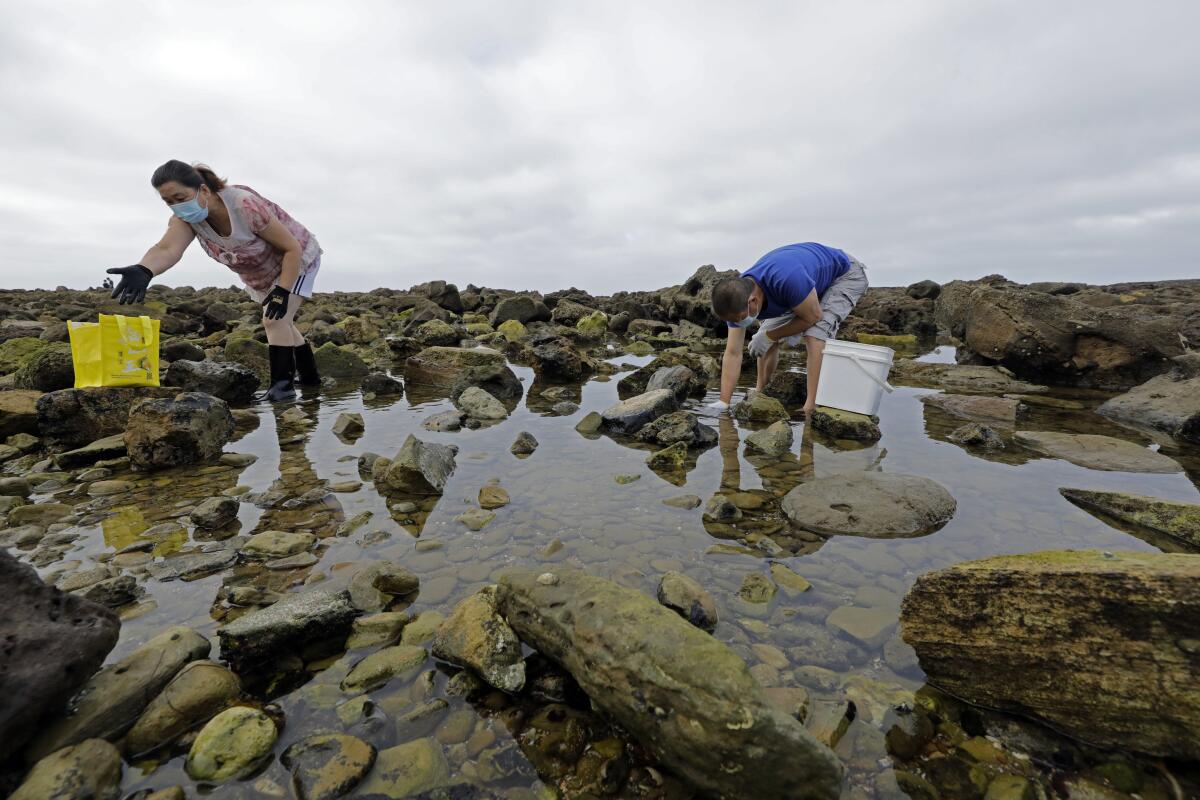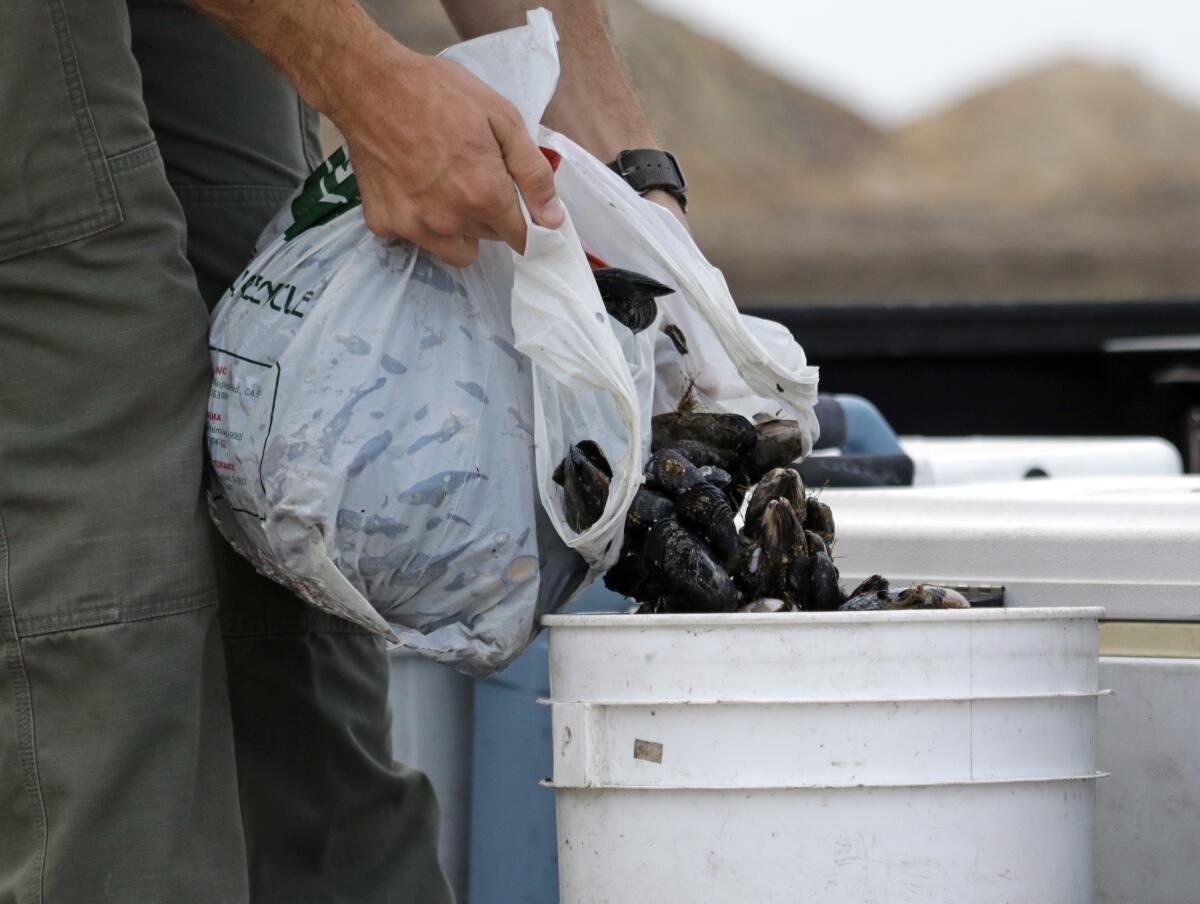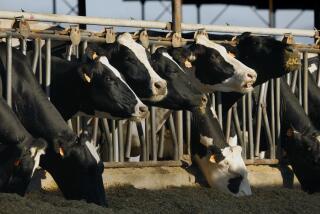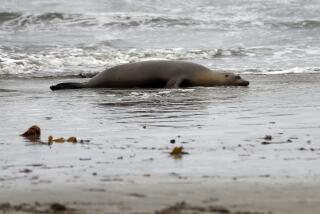O.C. health officials impose a new quarantine through Oct. 31 — but it’s not what you’re thinking

Officials with the Orange County Health Care Agency, the body tasked with oversight of public health programs during the COVID-19 pandemic, on Thursday announced a different kind of quarantine would be imposed through October: on mussels for human consumption.
Through Oct. 31, residents across California are being warned not to eat mussels and other potentially toxic shellfish collected by sports harvesters from coastal waters.
The reason? Harmful marine biotoxins produced by some species of microscopic algae can be absorbed by the digestive systems of mussels, clams, oysters and scallops. The consumption of affected mollusks puts humans at risk of paralytic shellfish poisoning.
Though only 571 cases of PSP have been recorded statewide since 1927, the condition can cause a loss of control in the arms and legs and eventually paralyze muscles in the abdomen and chest required for breathing, according to the California Department of Public Health.
Another illness, amnesic shellfish poisoning, has been similarly linked to eating affected mollusks. The condition stems from the consumption of high levels of domoic acid, which can cause vomiting, diarrhea, abdominal cramps, headache and dizziness in mild cases within a 24-hour period.
Issued this month by the California Department of Public Health, the warning applies only to sport-harvested shellfish. State-certified commercial harvesters and dealers generally provide safe shellfish products that have undergone frequent mandatory testing.
Lauren Robinson, a supervising environmental health specialist with the Orange County Health Care Agency, said the agency regularly samples and submits shellfish found in local waters to the state for testing and, during quarantine periods, posts placards in stores, bait and dive shops, public parks and other access points along the coastline.
The most troublesome of potentially toxic mollusks is the mussel, known to accumulate high levels of toxins more quickly than other bivalves and is commonly eaten with its digestive organs intact.

Throughout the quarantine, sport-harvested mussels are to be sold only as bait and must be clearly labeled with a warning: “Mussels for Bait Only. Unfit for Human Food.”
People who take clams or scallops are advised to remove and discard all digestive organs and viscera — which typically appear darker in color — before cooking and/or eating the white meat inside. Bivalve shellfish should not be taken from any area subject to sewage or chemical contamination, state health officials said.
Robinson says consumers cannot typically distinguish toxic mussels from harmless ones and warns that cooking shellfish will not destroy the toxins, which are heat stable. Thus she encourages people to purchase shellfish only from approved and regulated sources.
Questions about the quarantine may be directed to the California Department of Public Health’s Environmental Management Branch at (510) 412-4635. Questions about human shellfish poisoning cases may be directed to the state’s Infectious Disease Branch at (510) 620-3434.
The public health department also maintains a yearlong biotoxin information line at (800) 553-4133 that provides up-to-date information on special health advisories.
Cardine writes for Times Community News.
More to Read
Sign up for Essential California
The most important California stories and recommendations in your inbox every morning.
You may occasionally receive promotional content from the Los Angeles Times.











